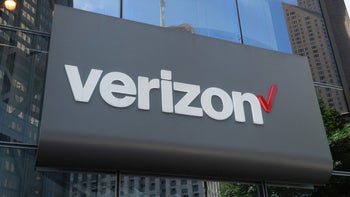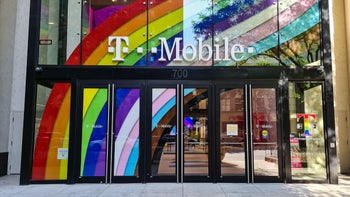New version of Google Maps heralds major emphasis on location-based offers
This article may contain personal views and opinion from the author.

Another day, another update to Google Maps for Android, right? Today’s update doesn’t have a long list of updates, but don’t be fooled into thinking that they are mere novelties; they are very important to Google’s digital ecosystem. Unlike Apple, who would wait until all the pieces were "perfect" and then release the service along with a major product launch or iOS update, Google is instead laying out bits and pieces, using feedback to polish each level as they go. But by looking at how the pieces are starting to fit together, it's easy to see that Google is building up a powerful mobile-driven offers and marketing service that will be more useful (and profitable) than the ads you currently get on your phone.
The update includes just three new features:
For a lot of people, seeing an indoor 360 degree panorama will probably feel like it’s just a feature of indoor navigation rather than a separate feature. Until more businesses participate, we imagine it will be fairly hit or miss as to what malls, office buildings, and restaurants let you navigate (and see an indoor “street-view” shots).
But both of those services are connected with Google’s larger goal to increase your ability to discover nearby Google Offers in maps, and to let businesses target ads and offers to people based on their location. Ever since Groupon showed that the packaging and selling of offers can be big business, Google has wanted in. They actually tried to purchase Groupon, as part of their ongoing struggle to discover new billion-dollar revenue streams.
Groupon declined and Google fell back on its plan B – its own Offers service. But Google isn’t merely playing catch-up, they actually hold a trump card: being able leverage the location-based services of a mobile operating system. Right now the typical offer from Groupon (or Google) is either restricted to a national offer, or if local the stores usually have to at the least restrict the coupon to not being used in the first day or so. In other words, it’s a very course tool - even Groupon's mobile offers tend to be city-wide, and are too slow to react to local conditions.
But what if instead you could send out an offer just to people within several blocks (or already inside a mall), or within some other arbitrary radius? If you could do it more or less in real time, that would be an immensely powerful tool for local businesses. Is your restaurant empty tonight because of a big high school sports meet? No problem, send out a one-night-only coupon to everyone in easy driving/walking distance. Perhaps send out coupons to the people that are actually at the high school arena! That's the sort of thing that businesses would kill for, as would people trying to figure out what to do on a Friday night.
Of course customers won’t see such offers unless they opt in, but there will be strong enticement to do so. A business can offer a much better deal if it they can target the deal to the demographics, time, and geography that will best suit their needs. Local stores could offer grand opening deals, bars could offer impromptu ladies-night deals when business is slow, and corporations could market to people inside a building where a tradeshow is being held.
So while this update by itself doesn’t seem earth-shattering – and in some ways the implementations are still fairly primitive – it’s a herald of a very important shift in advertising. Expect to see similar integration of local offers and location services from competing mobile platforms in the near future.
source: Google Play Store
- Discover nearby Google Offers in the US
- Indoor walking directions (Beta) for Japan and the US
- See 360° panoramas inside restaurants and stores
For a lot of people, seeing an indoor 360 degree panorama will probably feel like it’s just a feature of indoor navigation rather than a separate feature. Until more businesses participate, we imagine it will be fairly hit or miss as to what malls, office buildings, and restaurants let you navigate (and see an indoor “street-view” shots).
Groupon declined and Google fell back on its plan B – its own Offers service. But Google isn’t merely playing catch-up, they actually hold a trump card: being able leverage the location-based services of a mobile operating system. Right now the typical offer from Groupon (or Google) is either restricted to a national offer, or if local the stores usually have to at the least restrict the coupon to not being used in the first day or so. In other words, it’s a very course tool - even Groupon's mobile offers tend to be city-wide, and are too slow to react to local conditions.
Of course customers won’t see such offers unless they opt in, but there will be strong enticement to do so. A business can offer a much better deal if it they can target the deal to the demographics, time, and geography that will best suit their needs. Local stores could offer grand opening deals, bars could offer impromptu ladies-night deals when business is slow, and corporations could market to people inside a building where a tradeshow is being held.
Despite what Larry Page may say on the stand, this is why Android is so important to Google - being the gate-holder to location-based services may be the most powerful position Google has found itself in since they learned how to monetize search. Apple would never allow Google to have this sort of control of the maps implementation on the iPhone (this may also be a driving reason behind Apple's own maps project). Groupon knows this, and has created Groupon Now! in an effort to build up a similar ecosystem. In the short term there will be lots of competition from Groupon and other offer competitors, but without cutting deals with Apple (or any third ecosystem if one truly emerges) it will be an uphill struggle by companies that don't have a mobile platform of their own to leverage.
source: Google Play Store
Follow us on Google News













Things that are NOT allowed:
To help keep our community safe and free from spam, we apply temporary limits to newly created accounts: